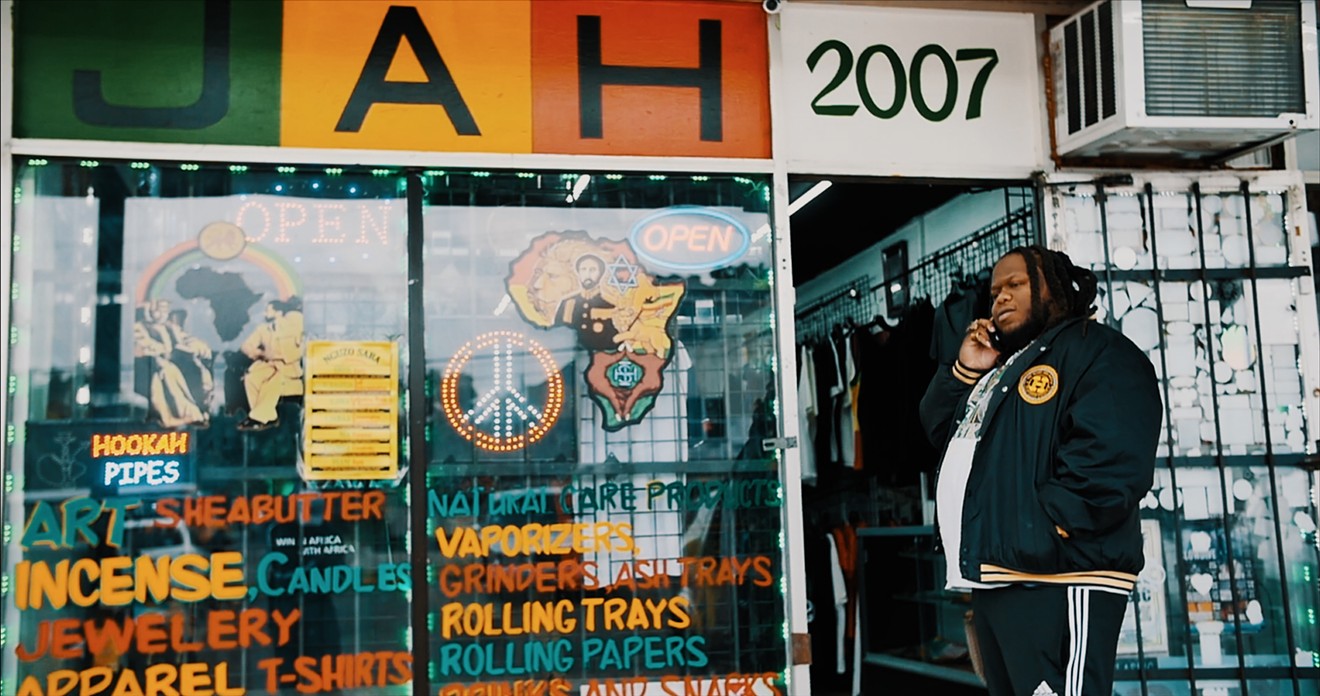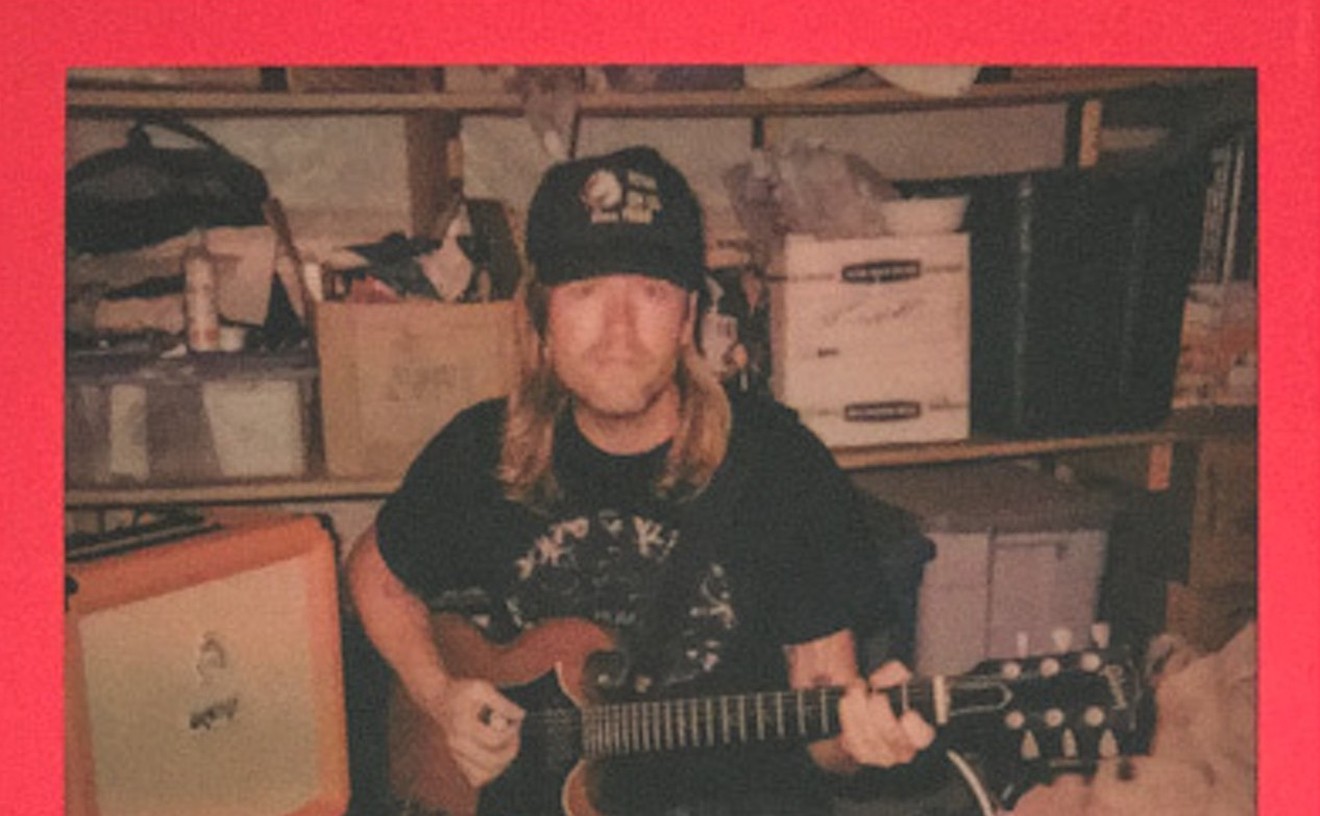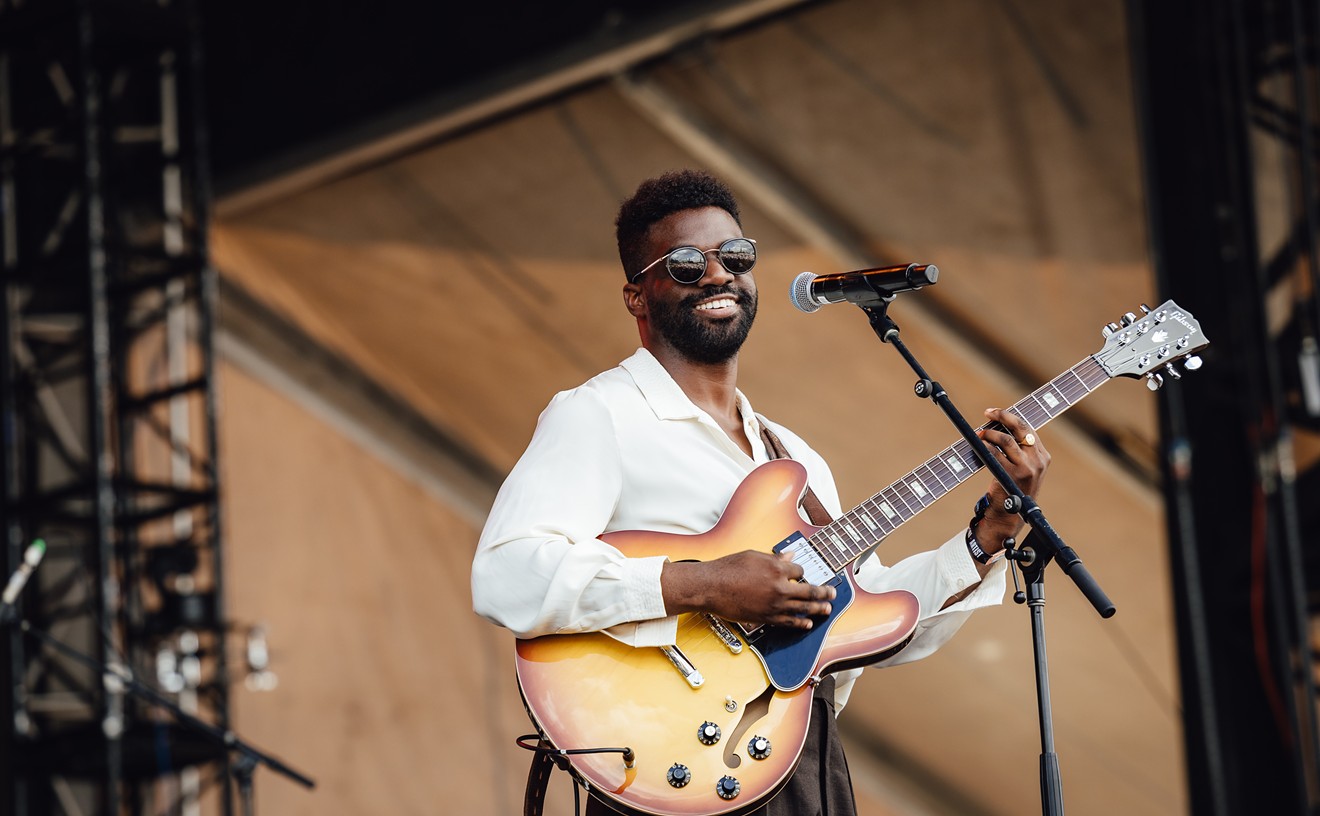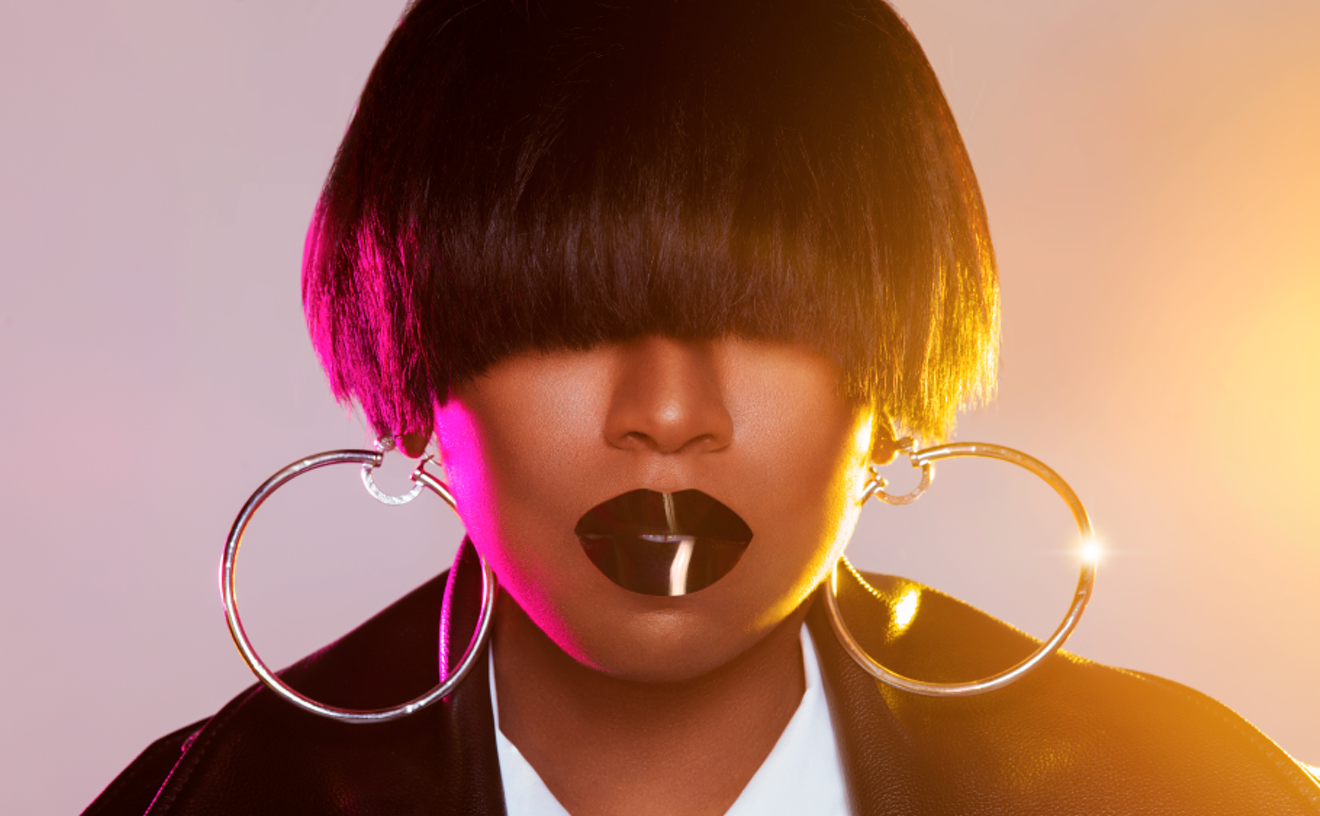But Al-Jabbaar’s story is unique. One event, both tragic and inspirational, led to his pursuit of music. Seated in a booth at BuzzBrews in Deep Ellum on a crowded Saturday afternoon, the artist shed light on the ingredients to his work and his new EP, Firebird.
“I was around hip-hop my whole childhood,” Al-Jabbaar says. “My father’s career is what ended his relationship with my mother even though they stayed best friends. My dad was trying to push me to the music — he named me Rakim for a reason. My mom was trying to pull me away from music [because of the lifestyle], so it was like a battle.”
Al-Jabbaar’s father died when Al-Jabbaar was 12, and until that point, the boy's primary pastime was football. A conversation with his dad before he died shifted his focus."My dad was trying to push me to the music — he named me Rakim for a reason." – Rakim Al-Jabbaar
tweet this
“I talked to him on his birthday two nights before he passed,” Al-Jabbaar recalls. “The last thing he said to me was, 'I know you love football, but if you can rap, I need you to rap,' and he died two days later. That’s when I picked up the pen.”
The loss of Al-Jabbaar’s father coincided with his introduction to poetry and literature in school, which laid the foundation for his writing ability. He used writing as an outlet to deal with the death of his father.
“I was in the seventh grade, and that’s when they started getting us into poetry and creative writing," Al-Jabbaar says. "It was perfect timing because with me dealing with his death, I could only write to get the pain out. I was quiet; I did a lot of watching and learning. In middle school and high school, people would be rapping and free-styling. I was writing, but I would never spit my rhymes. I would actually let you read my lyrics before I would say them out loud.”
Al-Jabbaar spent time honing his craft, studying wordplay techniques and song structure privately. His studious approach and creative writing background were prevalent in his debut album, No Pen Theory, released in March 2017. There’s a heightened sense of confidence on Firebird, which came out June 1.
Al-Jabbaar could enter any New York City rap battle and emerge victorious. He embodies the essence of pure hip-hop lyricism. Although it’s early in his career, the talent is within him to become one of the best wordsmiths this city has produced.
“The Antidote” from Firebird could be considered the elevator pitch for Al-Jabbaar’s lyrical prowess. The song has only one verse, in which Al-Jabbaar is in full-on verbal attack mode for one minute and 44 seconds without any chorus or pauses. Not only is the track a perfect example of his talent, but it shows he is not shy about expressing his beliefs about where he ranks among other hip-hop artists:
“My verses certainly asserted me, as the next superb MC
Right where I deserve to be, industry observing me
It’s clear to see, Al-Jabbaar falling is comical
Like saying B.I.G. would lose to Mic Geronimo, adios.”
The title Firebird is derived from a trippy dream Al-Jabbaar had shortly after becoming acquainted with collaborator and mentor DJ Menace.
“This was right when I had become cool with DJ Menace," he says. "We had conversations, but we had never linked up yet. In the dream, I went to his studio, we made some music, then went to this venue to debut it. We come back to the same venue to do it again, and its pandemonium. It’s crazy and so packed that to get to the stage, I had to fly."
He laughs.
“I fly to the stage with a purple phoenix and an elephant, "Al-Jabbaar says. "From that point, I had an idea to do this album called Legend of the Purple Phoenix. Of course, you know the phoenix represents immortality and the rebirth. I connected it with the idea of going from your lowest self to your highest self. I knew it was time to put some more work out, so this is kind of like a prequel to my next album."
Al-Jabbaar has a fundamental music background he feels gives him an advantage. His father was a drum major at Carter High School. His aunt played the clarinet, and Al-Jabbaar played bass clarinet. He has a producer’s mindset when it comes to creating his music — not in the traditional hip-hop definition of a producer, where he’s physically manipulating drum machines and synths, but he sometimes does that as well.
He is, however, proactive with choosing sounds, styles and samples that make up the soundscapes of his songs as opposed to just fielding and selecting beats he wants to use.
“Starting out, people wouldn’t give me beats," he says. "I told myself I’m not rapping on [other artists'] instrumentals ever again. I had to download Fruity Loops [sound creation software] and figure it out. I’m a hip-hop-head, so I can pick the right sample, the right drums and I’m done. It makes me more of an actual producer and not a beat-maker. I can produce an entire song and not touch anything."“Starting out, people wouldn’t give me beats." – Rakim Al-Jabbaar
tweet this
Al-Jabbaar is not one to take momentum for granted. He’s putting the finishing touches on a new Nemesis album with DJ Snake, and he opens for Royce da 5’9” at Trees on July 29. The dream Big Al had for his 12-year-old son to achieve success in hip-hop has become Al-Jabbaar’s reality.











